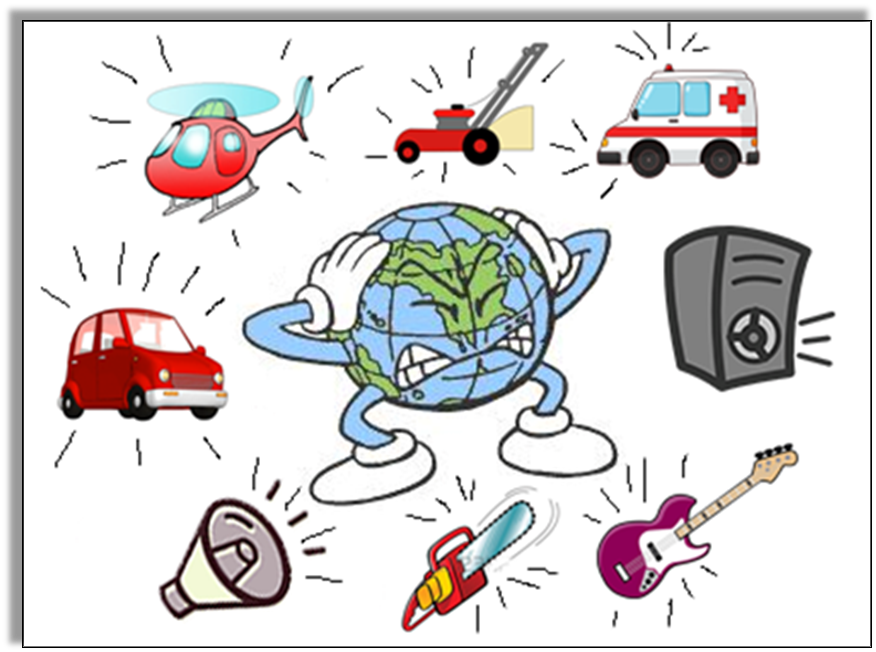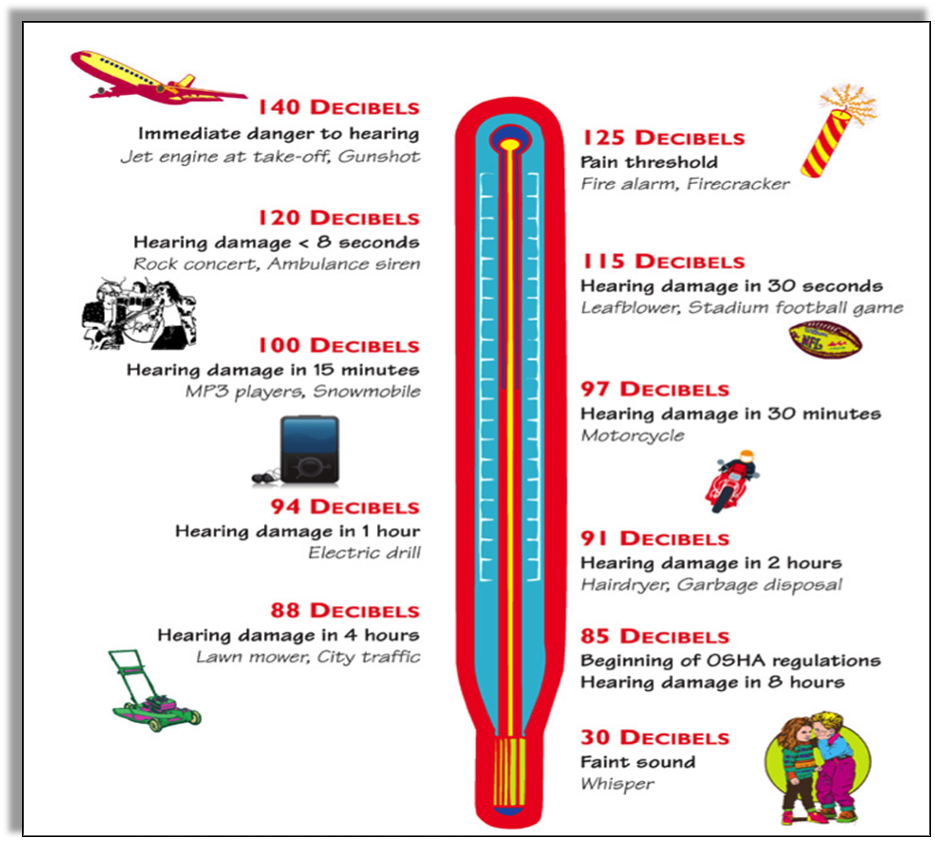- Books Name
- Class-8 Science Book
- Publication
- PathSet Publications
- Course
- CBSE Class 8
- Subject
- Science
NOISE POLLUTION
Noise pollution can be defined as the presence of undesirable and unpleasant sounds in the earth's environment.
- Unwanted and excessive sound in our environment creates Noise Pollution.
- Sounds of crackers, factories, vehicles, desert coolers, air conditioners, aeroplane, transistors or television with high volume, loudspeakers, etc. create noise pollution.
- Noise pollution can create many types of health-related problems, such as lack of sleep (insomnia), hypertension, loss of hearing, anxiety, etc. Sound above 80 dB is very painful to hear.
- A person who is exposed to loud sound continuously may get permanent or temporary loss of hearing (impairment of hearing).
- Human beings can bear sounds ranging up to 85 decibels only. Above that, any noise can damage our hearing power.
- Generally, any sound that has a frequency of more than 30 dB is considered noise.
- The unwanted noise causes an adverse effect on the health of the organisms present on the earth.
- According to the World Health Organization, the maximum sound limit that is ideal for cities is 45 dB only.
- However, it has been found that the sound range in many big cities of the world lies up to 90 dB.
- Hence noise pollution is common in many cities today and even rural areas to a great extent.

Causes of Noise Pollution
- Transport noise: The sound of the traffic on roads, railways and aircraft leads to noise pollution. As the number of vehicles such as cars, motorcycles, buses and trucks is increasing in the cities, especially the Metropolitans, noise pollution is extremely high there.
- Industrial noise: Industries, factories and other commercial businesses cause high-intensity sounds that pollute the environment.
- Neighborhood noise: The noise from the radios, televisions, air conditioners, coolers, kitchen applications and other electrical appliances used in houses leads to noise. Not only this, commercialization around the residential areas often leads to unwanted sounds due to small-scale industries such as printing, car repairing, etc.
- Construction noise: Construction of houses, industries and various architectures also lead to sound pollution.
- Political activities: Noise pollution is also created due to the rallies and demonstrations conducted by various political parties in cities and rural areas.
- Bursting of crackers and fireworks: People burst crackers on several occasions such as festivals and ceremonies that lead to sound pollution in the neighborhoods.
- Natural sounds: The environment of the earth also sometimes leads to unpleasant sounds due to lightning, thunderstorms, earthquakes, volcanic eruptions, sounds of various animals etc.

Effects of Noise Pollution
- Excessive noise in the surroundings can lead to serious health problems such as hypertension, lack of sleep or insomnia, anxiety, lack of memory, stress, irritation and even nervous breakdown.
- It can lead to temporary or permanent hearing loss in human beings as well as animals.
- Excessive noise leads to increased blood pressure. It increases cholesterol levels in the blood and therefore increases the chances of cardiovascular diseases in a person.
- If the sound intensity is more than 180 dB it can lead to the death of a person.
- Noise pollution also leads to a decrease in the production of digestive juices by our body.
- It can affect animals as well and can lead to their death and loss of habitats. Excessive noise decreases a person's ability to concentrate especially on children and they are unable to concentrate well on their studies due to neighborhood noises.
- Unwanted sounds in the environment can hinder the animals from finding their prey or their direction of motion.
Prevention of Noise Pollution
MEASURE TO LIMIT NOISE POLLUTION
Noise pollution can be limited by controlling the noise coming from the source. Noise pollution can be limited by taking some measures like:
- Factories and other industries should be set up at a distance from residential areas.
- Silencing devices should be incorporated into heavy vehicles such as aircraft, industrial equipment, machinery and other home appliances.
- We should always play television, radio and other music systems at a low sound so that it does not harm the neighborhood.
- The use of horns should be minimized especially near public places such as hospitals, religious places and schools.
- Soundproofing systems should be installed in industries, party halls and other buildings that produce a high amount of unwanted sounds.
- Trees should be planted in huge numbers as they can absorb unwanted noise from the environment.
- People who work in noisy conditions such as industries and mines should be provided earplugs to protect their ears.
- People should be made aware of noise pollution its adverse effects so that they can take an active involvement in preventing it.
- TV or radio should be played at low volume.
- Minimum use of vehicle horns.
- By installing high-quality silencers in vehicles.
- Plantation of trees along the roadsides because trees absorb sound.

 PathSet Publications
PathSet Publications
